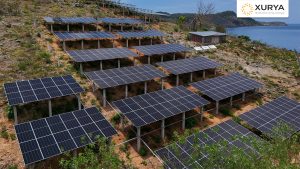Jakarta – The proposed closure of the Strait of Hormuz, a narrow strait that is a vital link for nearly 20 per cent of global oil supplies, which amount to around 17 million barrels per day, has sparked widespread concern, including in Indonesia. As geopolitical tensions in the Middle East escalate, with the United States participating in the Iran-Israel war, the potential for a global energy crisis will also increase.
Member of Commission VII of the House of Representatives, Christiany Eugenia Paruntu, in a written statement on Monday, 23 June, assessed that the disruption in the Strait of Hormuz will have a direct impact on the Indonesian economy. If world oil prices surge due to the crisis, the cost of imported oil-based fuel (BBM) will skyrocket, placing significant pressure on the State Budget (APBN) and eroding people’s purchasing power.
“If global oil prices rise dramatically, we will face a huge surge in fuel import costs. This could trigger serious fiscal pressure and burden the public,” said Christiany.
In the face of these threats, she stressed the importance of the government’s strategic steps to accelerate the downstreaming of the oil and gas sector. Energy transformation must move quickly, not only as a short-term response to the global crisis, but as a foothold towards national energy independence.
Christiany highlighted the need to accelerate refinery development projects in the country, such as the Tuban and Balikpapan refinery projects, which have not yet been optimised due to various technical and investment barriers. In addition to refinery development, she also encouraged the utilisation of oil and gas derivative products such as petrochemicals and high-quality fuel, which have great potential to stimulate the downstream industry while strengthening the national economic structure from the energy sector.
Diversification of supply and renewable energy
Beyond downstream infrastructure, Christiany reminded the importance of expanding energy diversification, both in terms of resource mix and supply partners. New and renewable energy (NRE), such as geothermal, solar, and bioenergy, is still not optimally utilised, even though its contribution to national energy consumption is still below 13 per cent.
“We need to accelerate the penetration of renewable energy as part of a strategy to reduce dependence on oil and gas imports, while maintaining energy security in the long term,” she said.
Christiany also emphasised the importance of enhancing energy efficiency in the industrial and transportation sectors. According to her, these two sectors are the largest contributors to energy consumption, and efficiency can be a solution to suppress the surge in demand without having to increase imported supplies.
Anticipating supply fluctuations from the Middle East, Christiany encouraged the government to expand its energy diplomacy network to non-traditional countries such as Russia, Australia and the African region. The aim is to diversify Indonesia’s portfolio of energy trading partners, thereby reducing its dependence on conflict-prone geopolitical regions.
As a form of legislative support, the House urges the government to accelerate the construction of new refineries, modernise energy storage infrastructure, and intensify energy diplomacy across regions. “Don’t wait for a crisis to occur before acting. It’s time for us to prove that Indonesia is serious about building national energy independence,” concluded Christiany. (Hartatik)
Banner photo: Image generated by OpenAI’s DALL·E via ChatGPT (2025)















